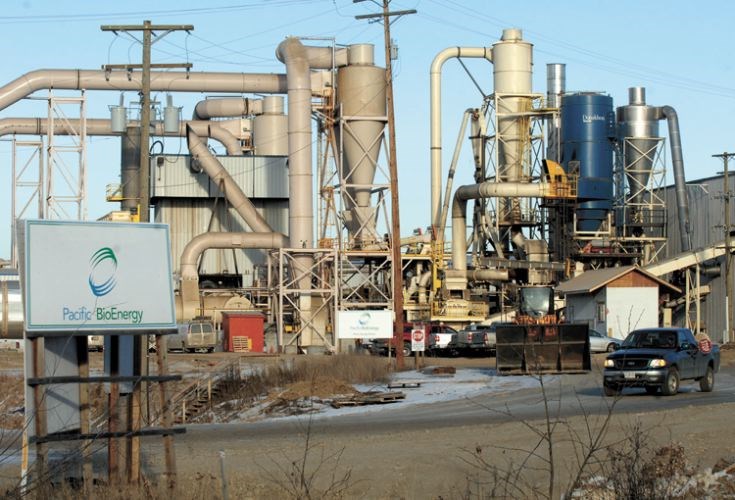One of Prince George's flagship companies in the alternative forestry sector has gotten an international boost.
Sumitomo Corporation of Japan has acquired a 48 per cent equity interest in Pacific BioEnergy Corporation (PBEC), one of Canada's leading producers of wood pellets. It has its head office in Vancouver but its original manufacturing facility is in Prince George on the Willow Cale Forest Service Road, built in 1994 then rebuilt and expanded in 2007.
It has timber supply locations in Kitwanga near Terrace and Nazko near Quesnel, plus manufacturing facilities in Quesnel and Fort St. John. Combined, the company produces in excess of 550,000 tonnes per annum of industrial grade pellets that go to market in Asia and Europe. Over the years, PBEC has manufactured more than 3.5 million tonnes of wood pellets sold onto the global market.
"PBEC welcomes the acquisition of 48 per cent of our company by Sumitomo Corporation," said PBEC's chair and CEO Don Steele. "We see the acquisition as a vote of confidence in our vision to continue to build PBEC and the biomass energy sector in British Columbia."
For Tokyo-based Sumitomo Corporation, this was a sensible move to secure an energy supply. They operate power generation plants. They need the fuel, so they now have their own stake in where it comes from.
"Sumitomo Corporation began importing biomass fuel into Japan for power generation in 2008," said a statement by the company. "Biomass fuel is seen as a promising energy source for encouraging wider use of renewable energies in Japan, and Sumitomo Corporation has been developing reliable sources overseas to complement domestically produced biomass fuel. In acquiring a stake in PBEC, Sumitomo Corporation is seeking to establish a steady wood pellet supply for the long term and thereby help spread and promote renewable energy."
Pacific Bioenergy has become Canada's second largest producer of these energy pellets, many of which utilize waste wood, unusable slash from logging and trim-off from the lumber mill side of the forestry sector.
"Global pellet demand is dominated by Europe today but new geographic markets for our product are beginning to develop," said a statement by PBEC. "At present, global demand for coal is approximately six billion tonnes per annum. Replacing just five per cent of this with wood pellet fuel results in annual demand of approximately 400 million tonnes of pellets, or roughly 40 times the current level."
Japan has set legislated targets for using renewable energy instead of dirty, unsustainable options like coal or other fossil fuels.
According to Sumitomo, "Wood pellets have attracted particular attention in Japan as a means of improving power generation efficiency to achieve the FY2030 energy mix formulated by the (Japanese) government in 2015."
In order for the investment in PBEC to occur, company officials acted to buy out a previous partner from Europe that held a 34 per cent share in the Prince George facility. Once that was 100 per cent in PBEC hands, they took on their new Japanese partners.
"Japanese utilities have been increasing their use of renewable biomass fuel at their power plants and Sumitomo views its purchase of 48 per cent of PBEC as a means to ensure access to a stable supply of renewable biomass fuel for the long term," said the PBEC statement.
Wood pellets are environmentally beneficial at both ends of its manufacturing arch. The wood used to make the energy pills would usually be burned, with smoke going into the local airshed. And where the pellets are burned, they are usually replacing a dirtier option so it spares the atmosphere those pollutants.



